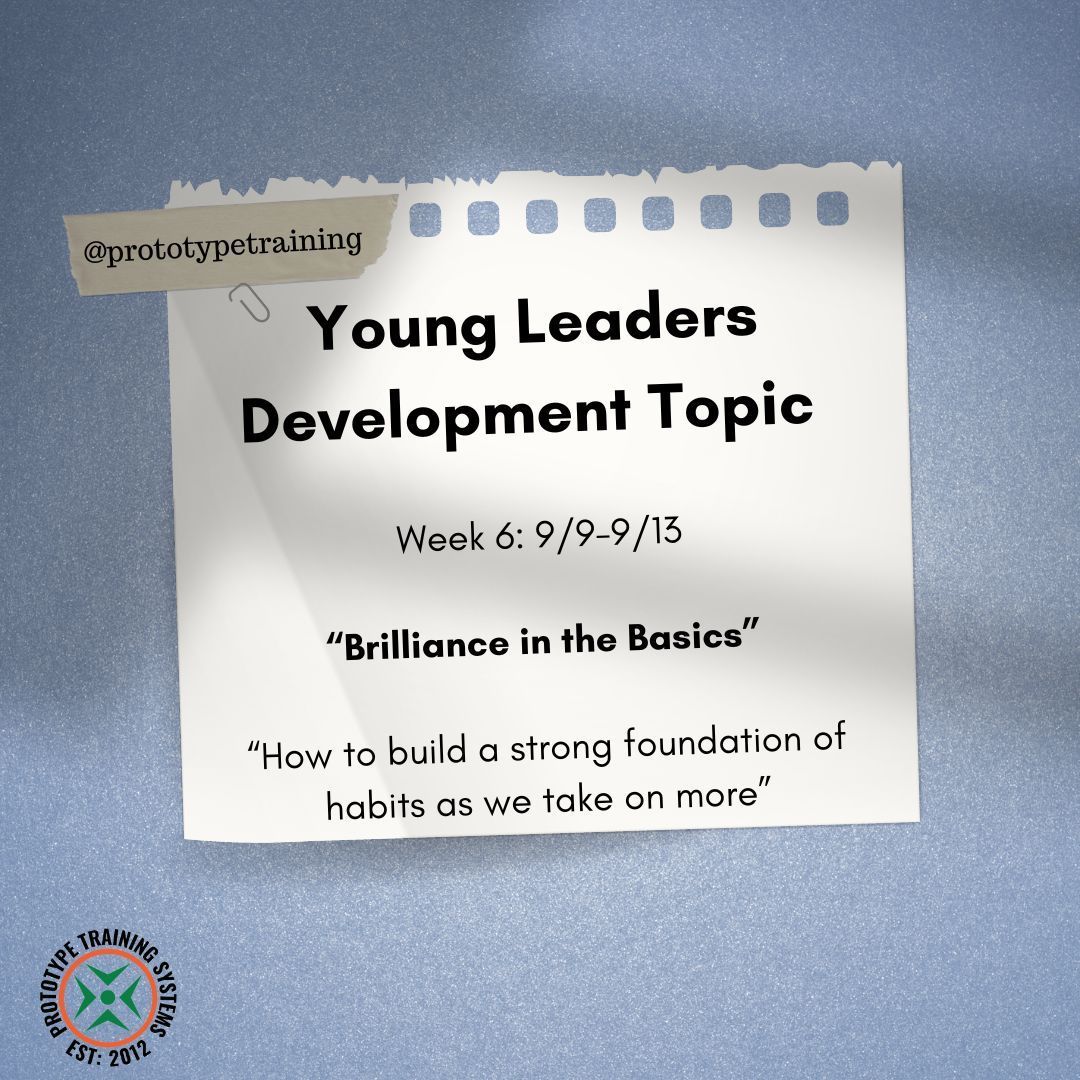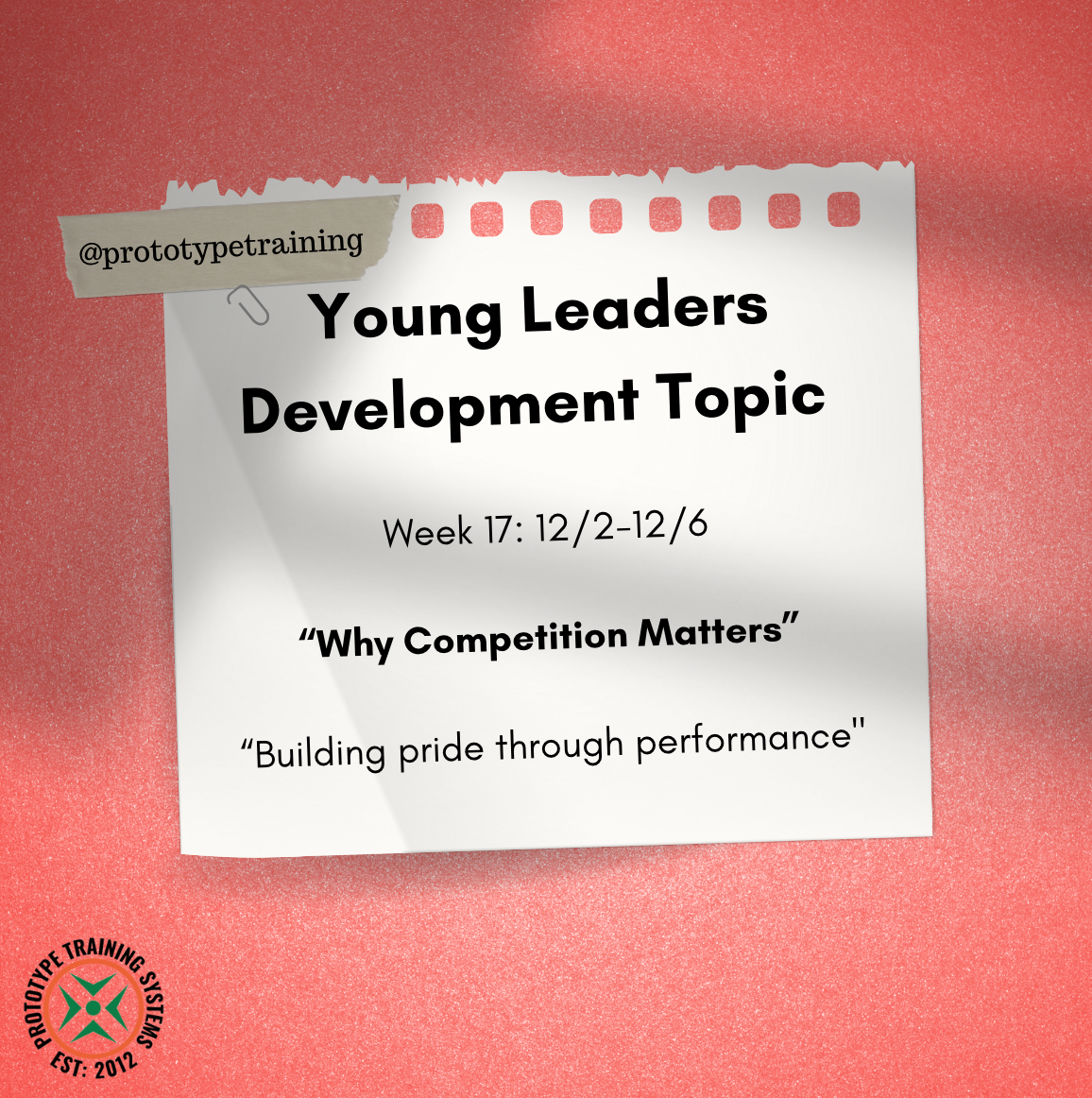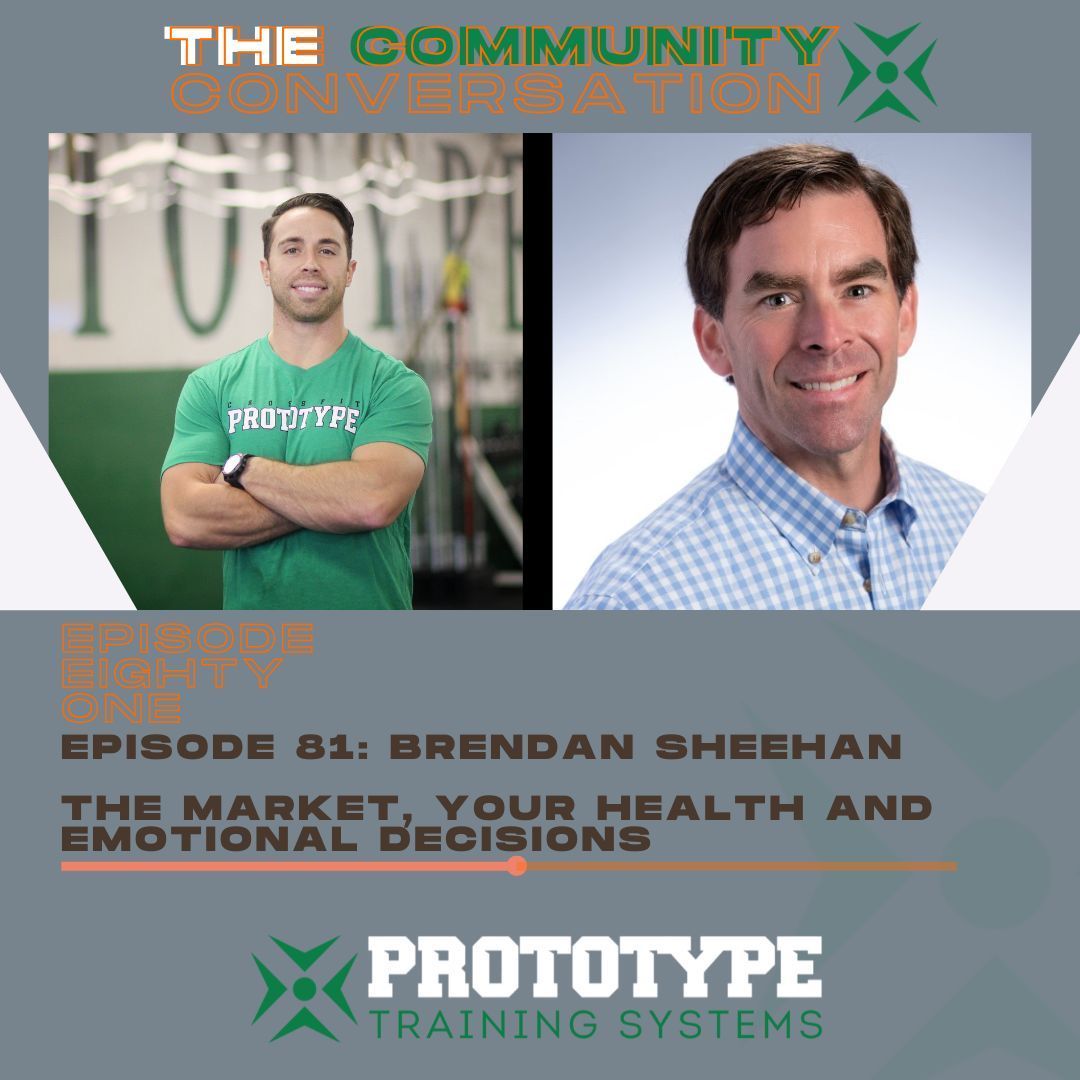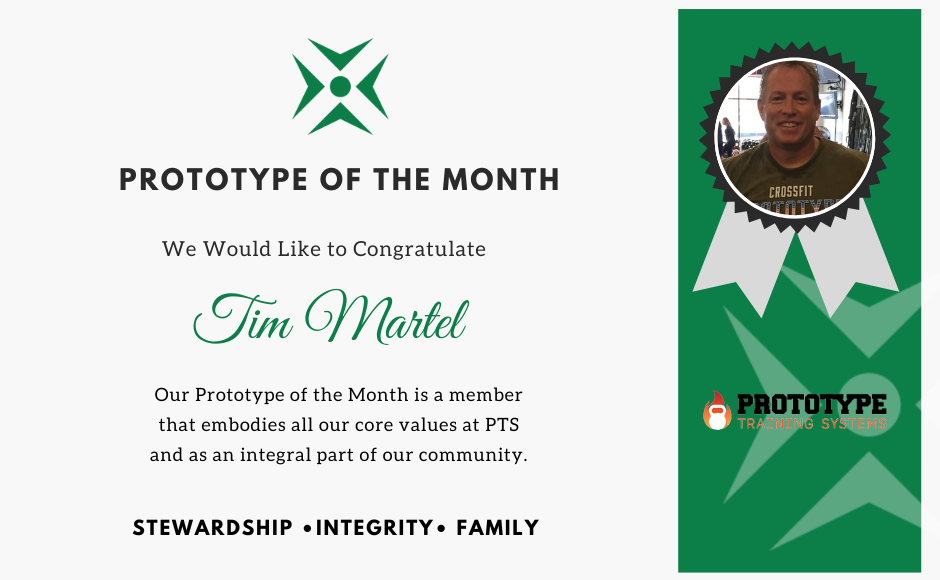Developing Young Leaders: Brilliance in the Basics
Mike Collette • September 16, 2024
Developing Young Leaders: Brilliance in the Basics

Week 6: How to Build a Strong Foundation of habits as we take on more
The students have been working diligently on these movements for some time. They started with the basics, progressively advanced their technique, and recently tested their One-Rep Max. The big takeaway for them was that all the effort spent perfecting these foundational movements led to personal records and significant progress.
However, the lesson extended beyond strength training. We emphasized that the principles of building a strong foundation apply to every area of life. Whether it’s in academics, sports, or other challenges, investing time in mastering basic skills creates a solid base for tackling more complex tasks. The dedication to perfecting these fundamentals equips them to handle greater challenges with confidence and success.
Consistency:
An important aspect of this lesson was understanding that consistency is key. You can't afford to let up or allow the basics to slip, as doing so can undermine your progress. If you start neglecting the fundamentals, the whole structure can crumble beneath you. Maintaining focus and continually practicing these basic skills is essential to sustaining growth and achieving long-term success.
To illustrate this, one student shared how practicing the violin consistently is crucial for mastering more complex pieces. Another mentioned how, in soccer, footwork and ball control are fundamental. Without attention to these basics, he struggles with executing advanced moves and making precise passes.
These examples show that whether in music, sports, or other areas, a strong foundation is vital for taking on more challenging tasks.
We also shared a compelling video with the kids featuring Nick Saban and Georgia's head football coach. In the video, both coaches emphasize to their teams how critical the basics are for achieving team success. This powerful message reinforced our lesson on the importance of focusing on the fundamentals in all areas of life.
Link to video:
It was a fun week, with the kids hitting a bunch of personal records. It was really cool to see their progress come together, with lots of smiles, high fives, and fist bumps all around.
Previous Blogs

Yesterday was a great reminder of what a little friendly competition can do. We set up a simple 1-v-1 game: kids had to sprint, tap two cones, and race back to knock over a foam roller. Nothing fancy, just movement, focus, and a clear goal. But something cool happened. The second it became head-to-head, the energy shifted. Kids were locked in. They ran harder. They pushed themselves—not because they were told to, but because someone else was giving it their all too. Even the kids watching got invested—shouting encouragement, clapping for effort, reacting to every close finish. That sense of shared experience, of community rooted in challenge, is exactly what youth development should be about. It was a perfect example of how competition, even in its simplest form, can bring out motivation and effort . Not for a prize, but just for the challenge of it. More Than a Game: The Real Value of Friendly Competition In today’s world of participation medals and well-meaning “everyone wins” culture, it’s easy to misunderstand the role of competition. But when designed thoughtfully and guided with intention, competition doesn’t diminish self-worth—it enhances it. According to a 2019 study published in Frontiers in Psychology, structured competition can lead to higher intrinsic motivation, improved self-esteem, and a greater sense of personal accomplishment in youth participants (Bonfiglio et al., 2019). When kids compete, they learn that effort yields results. They learn how to win graciously—and perhaps more importantly—how to lose with resilience. They discover the value of hard work, discipline, and focus. They get to ask: “How fast can I be?” “How far can I push myself?” And, “What happens if I try just a little harder?” The Pride in Performance There’s a moment—right after a child finishes a race, or a round of a competitive game—where they catch their breath, stand a little taller, and smile. Whether they won or not is almost secondary. What matters is that they showed up and gave their best effort. That sense of pride? That’s not vanity. It’s the birth of confidence. And when that confidence is built through movement, through play, through sweating and trying and doing—it sticks. Not just in sport, but in school, at home, in friendships, and beyond. Final Thoughts Competition, when framed the right way, helps kids build confidence, stay motivated, and take pride in their effort. It’s not about winning — it’s about showing up, trying hard, and learning what they’re capable of. At its best, competition doesn’t separate kids — it brings them together, showing them how to push themselves while supporting each other along the way.

It’s no secret — we’re living in a world that feels increasingly volatile. Financial markets are unpredictable. The news cycle is overwhelming, social media noise is constant and it's harder and harder to sort through what's real and what's not. And when uncertainty rises, it's human nature for people to start making emotional decisions. Being in the fitness industry for close to 20 years and operating Prototype Training Systems since 2012, I've seen this happen time and time again — not just in the stock market — but in our gym community. When we feel stressed financially (and trust me, i've been there as an entrepreneur), one of the first things they often cut is their investment in their health. Cancelling the gym. Skipping workouts. Pressing pause on coaching or training. We can go into a frenzy of what needs to be prioritized and what doesn't, and often it's rooted in anxiety and fear. On the surface, it makes sense: "Let me tighten up my budget until things feel safer." But here’s the truth — it’s completely backwards . Emotional Decisions Rarely Lead to Positive Outcomes In a recent conversation I had with Brendan Sheehan, founder of Waymark Wealth Management (and one of our community business sponsors), we talked about this exact thing. As we are facing that uncertainty now in the market. Click the link to listen to the full podcast! Brendan was sharing when the market drops — whether it’s 5%, 10%, or more — people panic. But the data shows this happens all the time. He shared that "the m arket dips of 5-10% happens three times a year on average." Dips of 10-20%? Happens at least once a year. It’s not unusual — but when emotions take over, we make decisions that can hurt long-term. And this same pattern can show up in health and fitness. Your Health is Not a Luxury — It’s Essential Let’s be real — when life feels hard, stressful, or uncertain, you need your health more than ever. Exercise isn't just about aesthetics or performance — it's your anchor. Working out helps you regulate stress, sleep better, stay clear-headed, and avoid the emotional roller coaster that uncertainty brings. Cutting your health investments when things get tough is like saying: "The storm is coming... so I'm going to throw away my umbrella." It doesn’t make sense, but this what happens when emotions are high, it's REALLY hard to make logical decisions. We can get into a binary mode of thinking... then we take action which often isn't fully thought out. The Vicious Cycle: Stress → Cut Health → Decline → Regret Here's the common pattern we’ve seen over the years... and I would argue is common in every gym across the country... Things get tough financially or emotionally. We go into "panic" mode... start to take action. People cut their gym membership or stop exercising. Maybe you over narrate it's not worth it... maybe you over narrate I'll just do it on my own and change my entire routine... or maybe you think it will only be very short term. Then, stress increases. Energy drops. Sleep gets worse. Health declines — physically and mentally. Time passes... regret kicks in. "I wish I hadn't stopped. Now it’s even harder to get back ." Sound familiar? It's a vicious cycle and REALLY hard to break. We’ve seen it over and over — and we’ve helped people climb back out of it. But we’d rather help you avoid that spiral in the first place. What Should You Do Instead? Have faith in your routine and take a second to pause before making a major life change. Double down on habits that ground you — like fitness, community, and nutrition. Talk to a coach. Share what’s stressing you out — we’re here to help. Be curious — ask questions before making big decisions. Remember: health is not the problem — it’s the solution. Final Thought: Uncertainty will always be part of life. Markets go up and down. Challenges will come and go. But the best investment you can make — in any economy — is in your physical and mental well-being. At Prototype Training Systems, we’re more than a gym. We’re a community that helps people stay grounded, consistent, and healthy — no matter what’s happening outside our walls. If you’re feeling the pull to cut your health in hard times — let’s talk. Book a Free Goal Review Session with a coach... seriously, we're here to help. We’ll help you navigate uncertainty the right way — by staying strong, staying consistent, and investing in yourself.

1.) Share your experience: I've been coming to prototype for many years , since the kids were little ! They all took kids classes and caught the bug ,,,, still working out today. My daughter Allie is in high school and has recently returned to prototype and loving it ! 2) What’s your favor part of Prototype: Seeing the people working hard to get heathy. I enjoy the competition and that we all push each other to get better. I feel that everyone is really genuine at prototype. 3)What are your hobbies and activities: I consider Prototype my hobbies/activity. When not working out i do enjoy fishing/golfing and spending time with family. 4) How has prototype helped you solve a problem: I believe prototype keeps me healthy and sharp. This gives me the ability to be the best on any challenge. 5) What are you continuing fitness goals: To stay strong and health as long as possible. 6) What's your favor quote: Coach Brian - Positive attitude/mindset!!! Let's goooo See the short interview with Tim below on our Instagram page! Click the link below!
Climb to New Heights
Prototype Training Systems is more than a gym - it is a lifestyle. Join us today!

